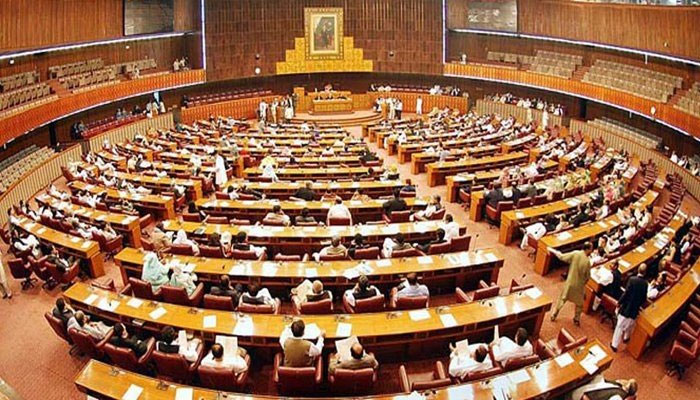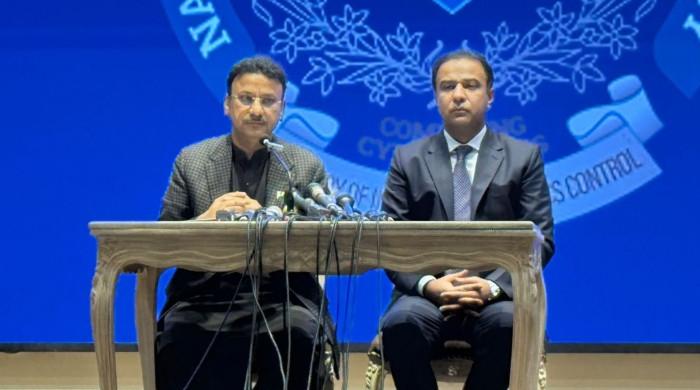Explainer: Here is all you need to know about legislating through joint session
“The constitution authorises the president to summon either or both houses at any time,” says legal expert
September 02, 2021

- As per the constitution, president may from time to time summon either or both houses of the parliament in a joint sitting.
- “There’s no bar on how many times it can be done, according to Article 54,” says Aasiya Riaz.
- “It’s practically wrong to not develop consensus on laws that affect every political party”, says Riaz.
ISLAMABAD: Adviser to the Prime Minister on Parliamentary Affairs Dr Babar Awan Wednesday said that the government will ensure that the bill seeking electronic-and-internet voting for the next polls is made law before the end of this year.
Addressing a press conference in Islamabad, Awan said that the bill will sail through “even if we have to go for a joint session of the parliament”.
The suggestion, it seems, has come up primarily because the ruling-PTI does not have a majority in the upper house of the parliament, where its bills could face resistance.
What is a joint session and how it works?
As per Article 54 of the Constitution of the country, the president may — from time to time — summon either or both houses of the parliament in a joint sitting.
Once a session is called, the secretary will then issue a notification in the official gazette that informs members of the date, time, and place of the meeting.
Speaking about the joint session, Pakistan Institute of Legislative Development and Transparency (PILDAT) Joint Director Aasiya Riaz said: “The constitution authorises the president to summon either or both houses at any time.”
“There’s no bar on how many times it can be done, according to Article 54,” she said, adding that as per Article 70 (3) of the Constitution, if the two houses cannot pass a bill, then the only way to do it is through a joint sitting.
What happens when a joint session is called?
Under the Parliament (Joint Sittings) Rules, 1973, the speaker will preside over the session and ensure that a quorum of the joint session is 1/4th of the total membership of the two houses.
Copies of the bill, to be discussed, will then be distributed, together with amendments, if any, to each member after giving at least one day’s notice.
Once in session, the bill can either be passed by the joint session or referred to a committee on bills or be circulated for the purpose of eliciting opinions.
For the bill to be passed, with or without amendment, it would need the vote of the majority of the total membership of the two Houses. The bill will then be signed by the speaker and sent to the president to be turned into law.
Is legislating through a joint session problematic?
Technically, there’s no constitutional issue with making laws through a joint session, Riaz explains, adding that while no law requires that bills should have a consensus before being passed, “it’s practically wrong to not develop consensus on laws that affect every political party”.
The Pakistan People’s Party during their tenure in 2008-2013, and the Pakistan Muslim League-N in 2013-2018, reached a consensus on electoral laws before their passage, Riaz explains.
“Especially in 2013-2018, if you recall how polemical the PTI and PML-N were during the dharna days, still the PML-N brought the PTI back into the committee to create consensus before the Elections Act, 2017 was passed.”
Passing any election-related law though the majority is of course technically possible but it will remain controversial and problematic, Riaz added.









